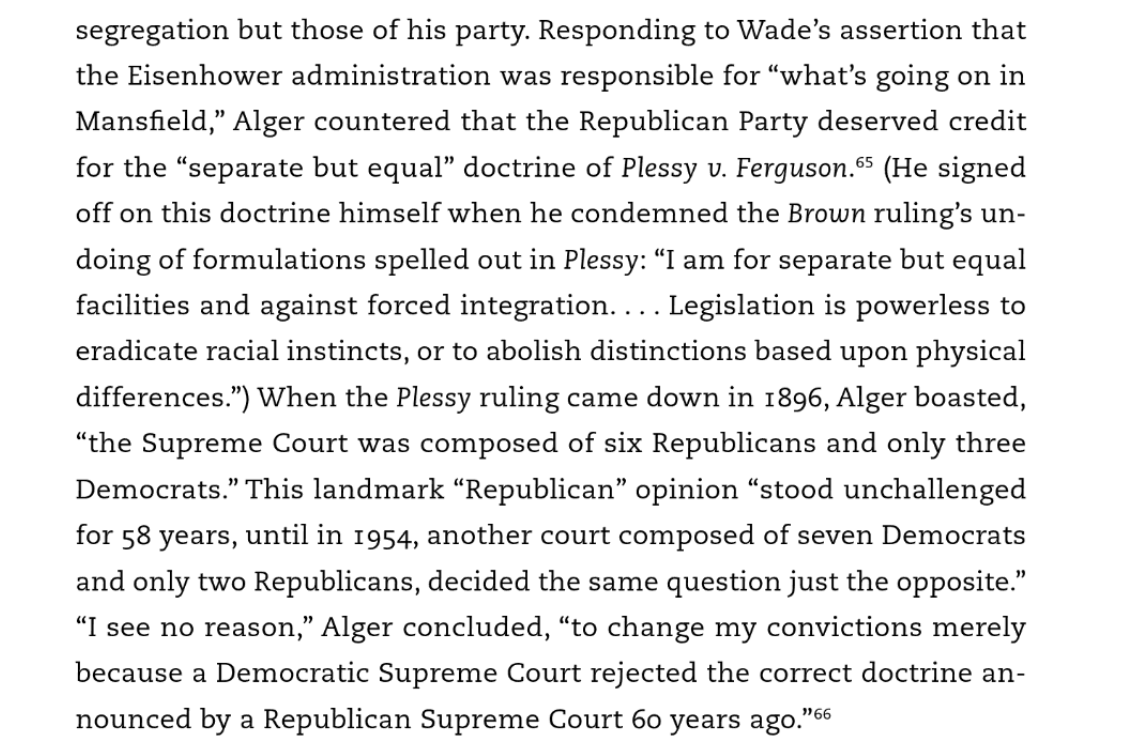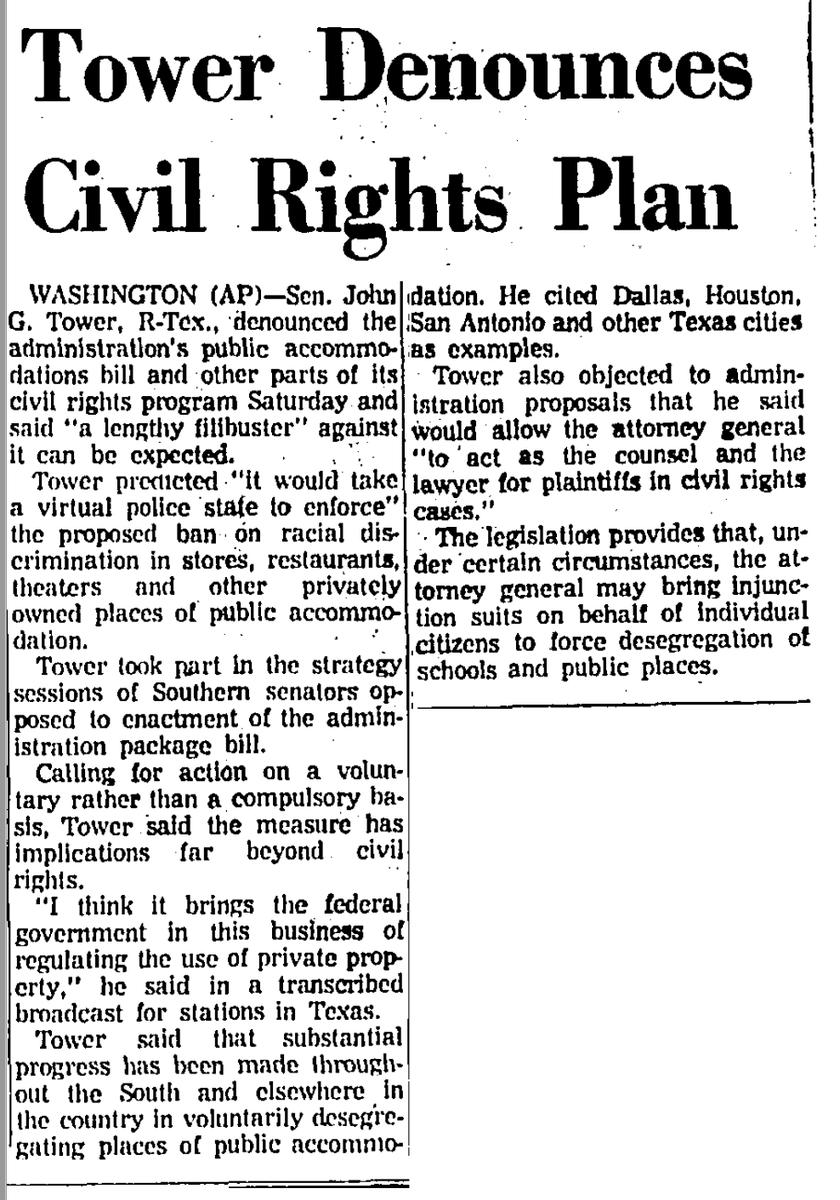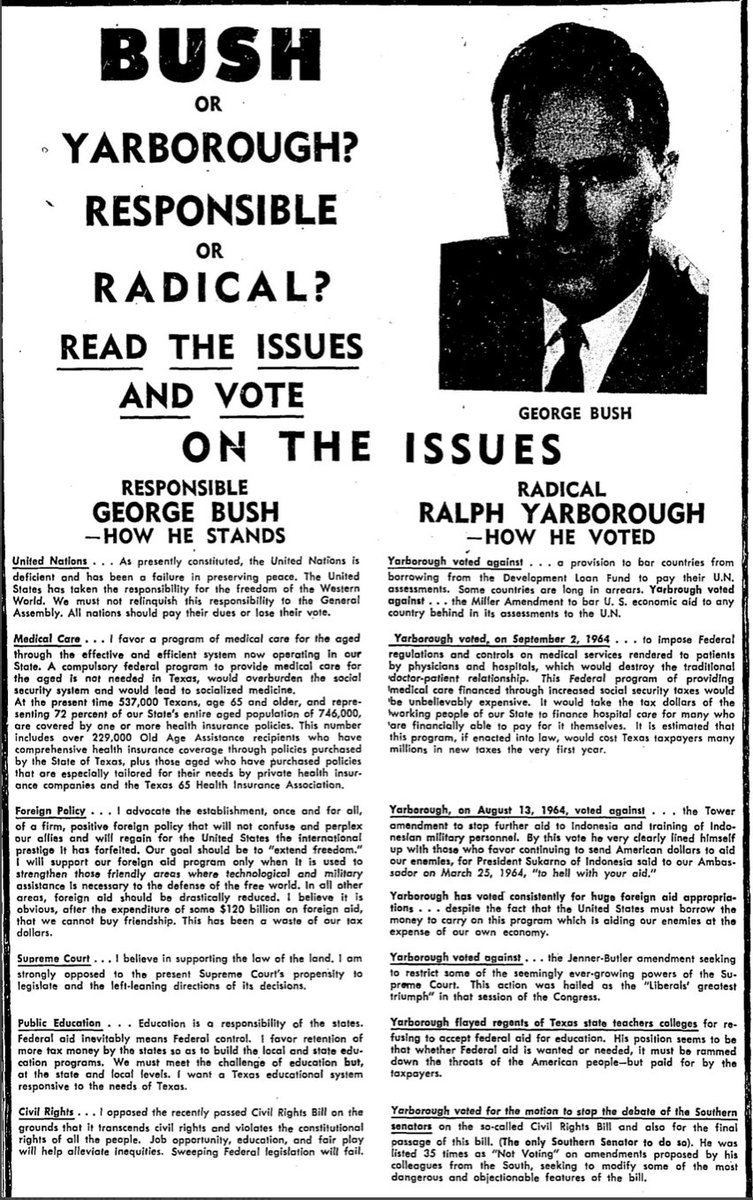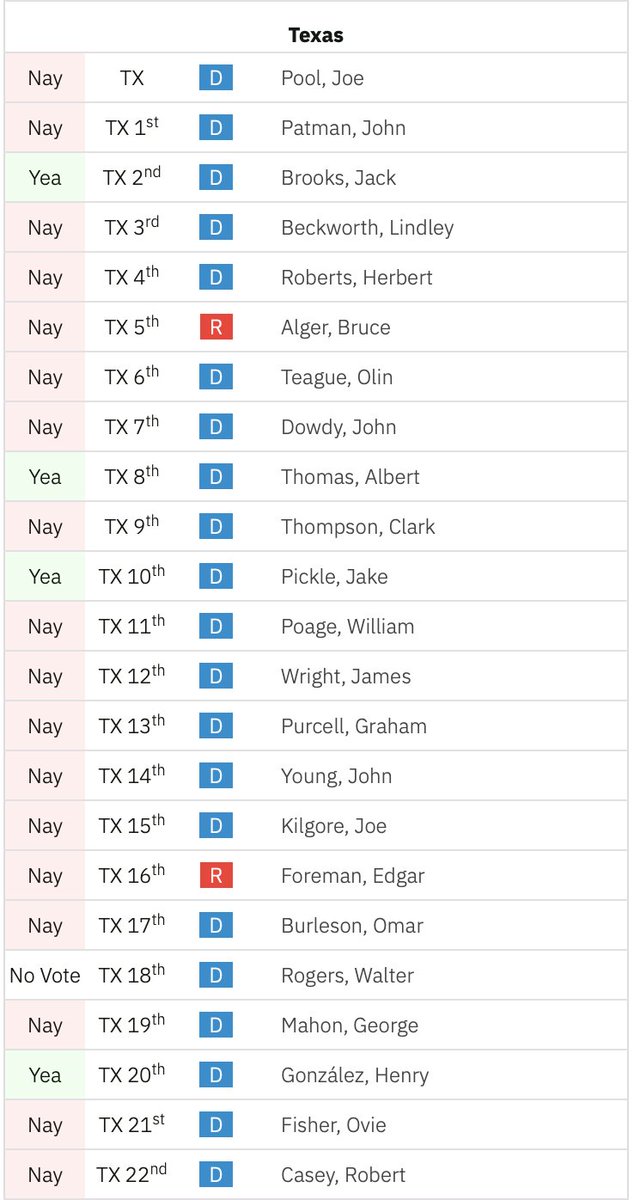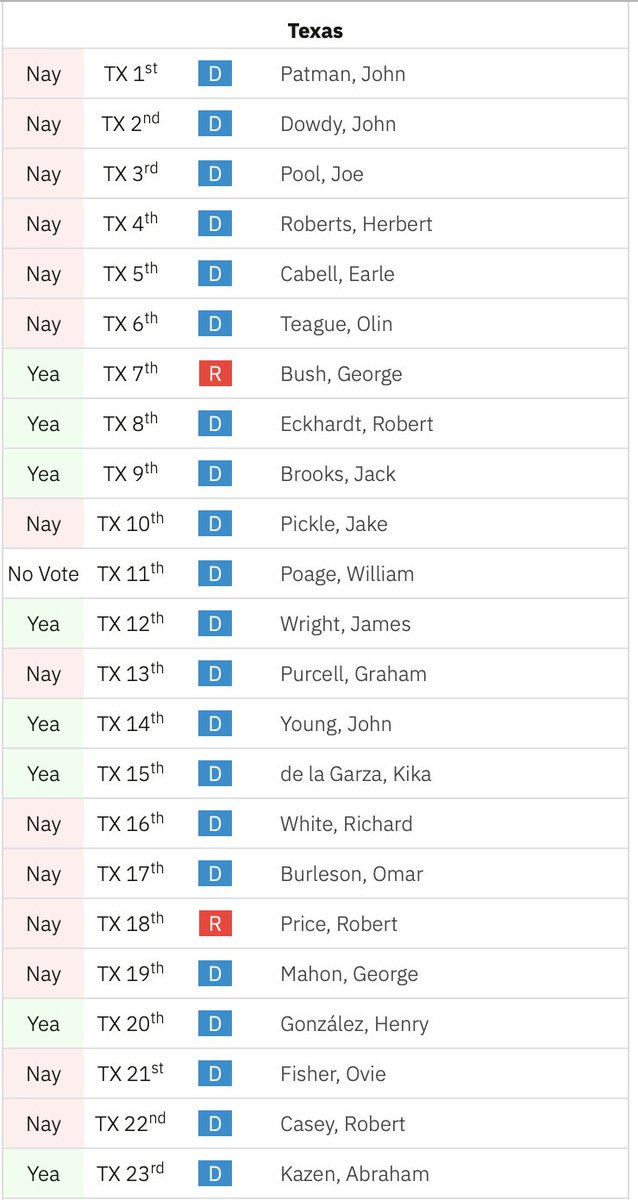Hey there, @tedcruz! Let& #39;s take a quick tour through the Texas Republican Party& #39;s history in the civil rights era! https://twitter.com/tedcruz/status/1298289464113090560">https://twitter.com/tedcruz/s...
As I& #39;ve noted repeatedly on here, the first wave of Southern Republicans in the 1950s and 1960s largely showed the same support of segregation as Southern Democrats.
Texas Republicans in the 1950s and 1960s fit that pattern well. https://twitter.com/KevinMKruse/status/993475107992559616">https://twitter.com/KevinMKru...
Texas Republicans in the 1950s and 1960s fit that pattern well. https://twitter.com/KevinMKruse/status/993475107992559616">https://twitter.com/KevinMKru...
For instance, when the Brown ruling was handed down in 1954, the Texas GOP nominee for governor attacked the Court and promised he would preserve segregation if elected.
He went so far as to criticize Texas Democrats for failing to take a "positive stand for segregation."
He went so far as to criticize Texas Democrats for failing to take a "positive stand for segregation."
Or consider the first Texas Republican elected to the House after Reconstruction, Bruce Alger of Dallas.
In 1956, he blamed the Brown decision on Democrats and insisted the GOP deserved credit for the "separate but equal" segregation doctrine.
(From Ed Miller& #39;s Nut Country:)
In 1956, he blamed the Brown decision on Democrats and insisted the GOP deserved credit for the "separate but equal" segregation doctrine.
(From Ed Miller& #39;s Nut Country:)
Look at the first Texas Republican Senator after Reconstruction -- Sen. John Tower, elected in 1961.
He filled the seat held by LBJ, who shepherded the 1957 & 1960 Civil Rights Acts in the Senate and later pushed for the 1964 Civil Rights Act as president.
Tower opposed that:
He filled the seat held by LBJ, who shepherded the 1957 & 1960 Civil Rights Acts in the Senate and later pushed for the 1964 Civil Rights Act as president.
Tower opposed that:
When it came time for the Senate to vote on the Civil Rights Act of 1964, Republican Sen. John Tower voted against it, while Texas& #39;s other senator -- Ralph Yarborough, a rare liberal Southern Democrat -- voted for it.
https://www.govtrack.us/congress/votes/88-1964/s409">https://www.govtrack.us/congress/...
https://www.govtrack.us/congress/votes/88-1964/s409">https://www.govtrack.us/congress/...
After Sen. Yarborough voted for the Civil Rights Act, the Texas Republican running against him in the 1964 election -- George H.W. Bush -- stressed his own opposition to the bill in campaign ads and tried to use Yarborough& #39;s support for civil rights against him.
The stance Tower and Bush took against the Civil Rights Act with the larger approach of the Texas GOP.
In the House, Rep. Alger and Rep. Edgar Foreman -- the only two Texas Republicans there -- both voted against it too.
Most Dems did as well, but a handful broke ranks:
In the House, Rep. Alger and Rep. Edgar Foreman -- the only two Texas Republicans there -- both voted against it too.
Most Dems did as well, but a handful broke ranks:
Both Alger and Foreman lost in 1964, so they didn& #39;t have a chance to vote on the Voting Rights Act of 1965.
But John Tower was still there as the lone Texas Republican left in Congress.
He voted no.
https://www.govtrack.us/congress/votes/89-1965/s78">https://www.govtrack.us/congress/...
But John Tower was still there as the lone Texas Republican left in Congress.
He voted no.
https://www.govtrack.us/congress/votes/89-1965/s78">https://www.govtrack.us/congress/...
Three years later, Congress passed the Civil Rights Act of 1968 in tribute to recently assassinated civil rights leader Martin Luther King, Jr.
This time, though, John Tower didn& #39;t vote against it!
Instead, he bravely decided not to vote at all.
https://www.govtrack.us/congress/votes/90-1968/s346">https://www.govtrack.us/congress/...
This time, though, John Tower didn& #39;t vote against it!
Instead, he bravely decided not to vote at all.
https://www.govtrack.us/congress/votes/90-1968/s346">https://www.govtrack.us/congress/...
To his credit, George H.W. Bush -- then in the House -- voted *for* the 1968 Civil Rights Act, while the other Texas Republican in that chamber voted against it.
So the record of Texas Republicans on civil rights measures was *pretty* bad in the 1950s and 1960s -- worse even than Texas Democrats, who usually gave at least a few of votes in favor of civil rights measures.

 Read on Twitter
Read on Twitter

